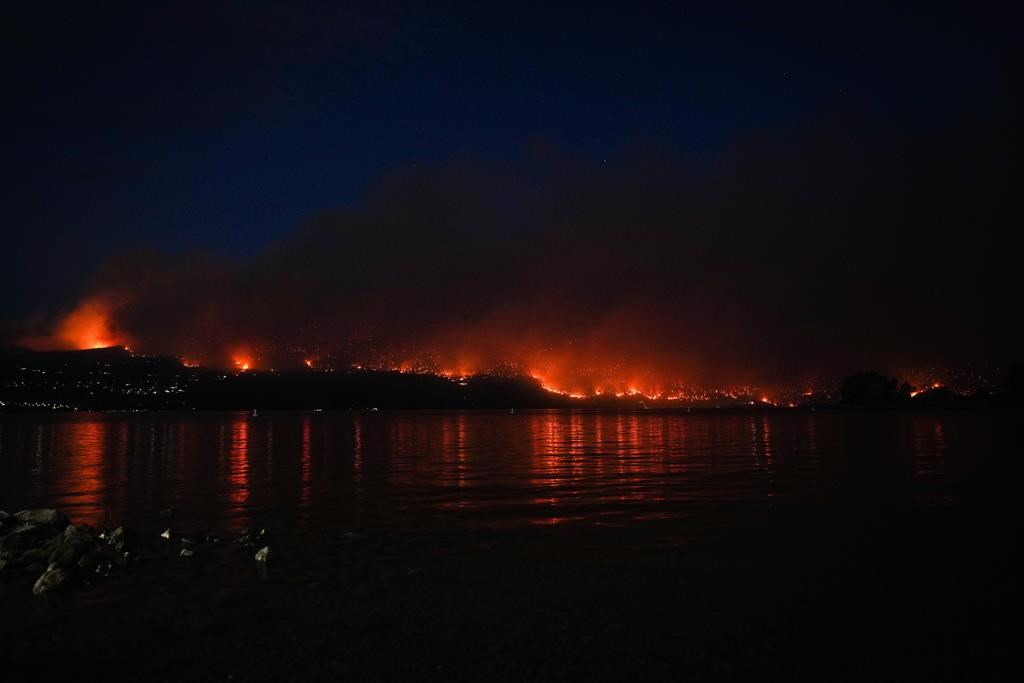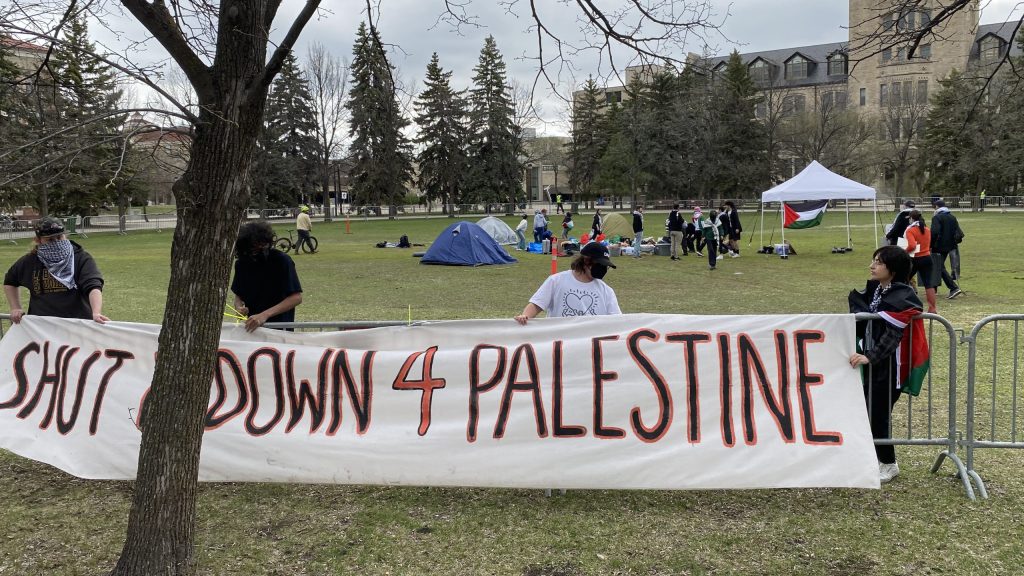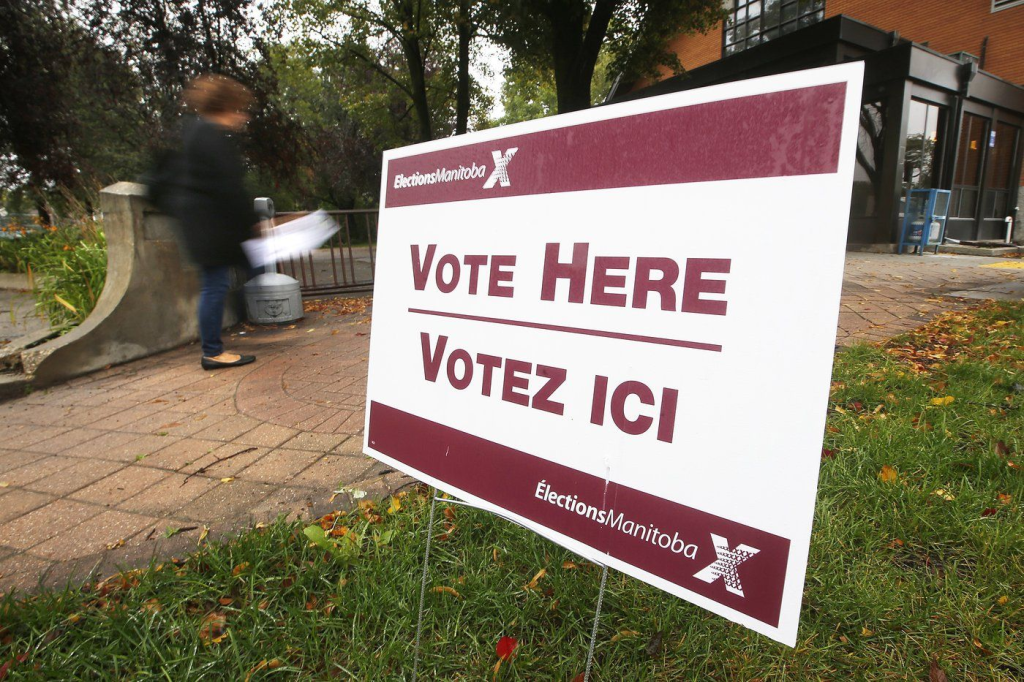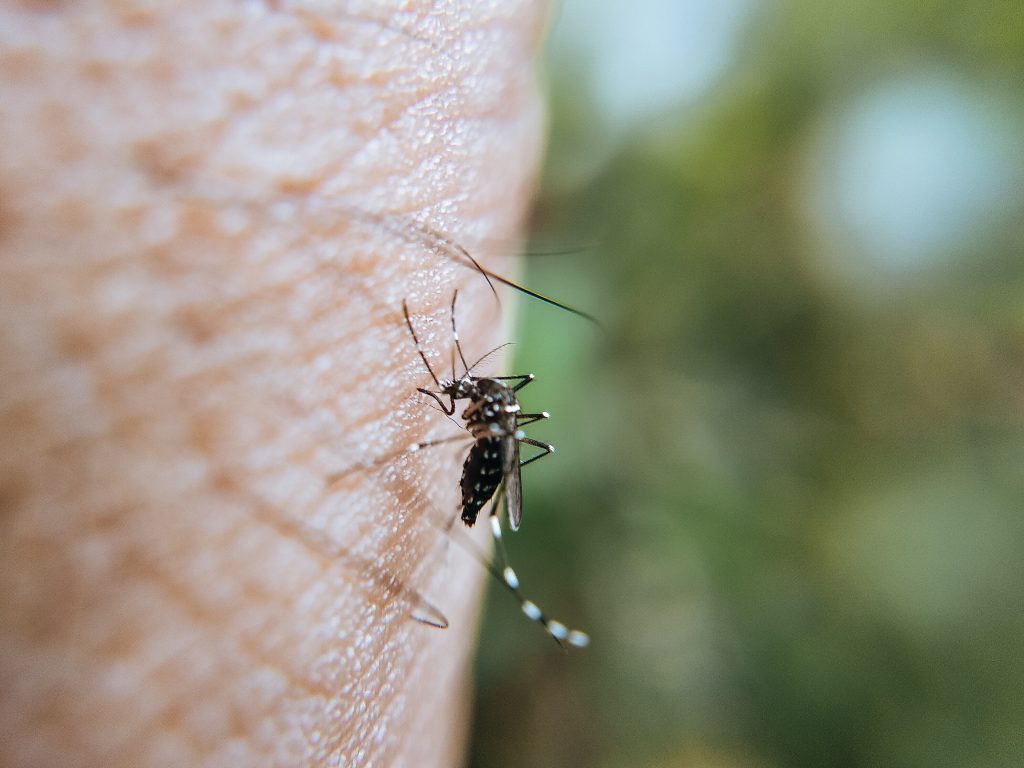Crews fighting Kelowna-area wildfire see ‘cautious’ reprieve overnight: officials

Posted August 19, 2023 1:56 pm.
Last Updated August 20, 2023 3:49 pm.
BC Wildfire Service says they had success overnight fighting the McDougall Creek wildfire near Kelowna, after some of the most challenging days yet.
Dense smoke from the fire — which now covers an estimated 10,500 hectares — actually helped firefighting crews by preventing the sun from drying out fuels on the ground, BC Wildfire Service Fire Information Officer Nicole Bonnett says.
“That helped keep fire behavior to a rank two, rank three overnight,” Bonnett explained. “That’s more of a low vigor surface fire to moderate vigor surface fire where you’re starting to see like open flame and consumption of those larger fuel types.”
Despite this, West Kelowna Fire Chief Jason Brolund says he’s hesitant to call Friday evening a reprieve.
Related Articles:
-
Wildfire smoke triggers air quality statements for much of southern B.C.
-
B.C. Premier David Eby declares provincial state of emergency: ‘We can and will get through this together’
-
More evacuation alerts issued for south shore of Shuswap Lake
“We were still fighting multiple structure fires at the same time, across the community. So, to [be able to] call that a reprieve, it boggles my mind.”
The fire grew by more than six times between Thursday and Friday. Brolund says Friday was one of the most difficult days of firefighting his department has ever faced.
“It’s become evident that this event is going to leave a long-lasting scar on our community,” Brolund said in a media conference Saturday morning.
Brolund says an “army” of resources is working in his city Saturday, including 127 structural firefighters and 41 fire trucks.
Crews from across the province, including Williams Lake, Ladysmith, Sunshine Valley, Merritt, Logan Lake, Chilliwack, Surrey, and some from Vancouver Island are part of the crew, “with more to come.”
Over the past couple of nights, Brolund tells stories of heroism and devastation.
“The fire has approached our Rose Valley Water Treatment Plant. This is a $75 million building, it is nearly completed and the water is almost flowing. It’s a piece of critical infrastructure that is going to make an immense difference to our community when gone and we were not going to burn down.
“It burned over the treatment plant last night. I am happy to report that it was saved and undamaged,” Brolund shared.
“Yesterday, … our crews were sent to a street in West Kelowna and they found three houses were burning next to each other and the fire was expanding up the hill, it was threatening hundreds of homes above those three.
“At the same time our crews were fighting it on the ground, [the BC Wildfire Service] crews were flying above in helicopters, dropping water on the same fire. This is unprecedented firefighting tactics that are taking place out there because of the cooperation. For us to be supported from the air, the way that we were and to result in a save of hundreds of homes like that, is absolutely amazing,” Brolund said.
Water restrictions for Rose Valley
There’s a water outage in the Rose Valley neighborhood west of Kelowna and the City of Kelowna is announcing a ‘do not consume’ order for all of the Rose Valley Water System. Stage four restrictions are in place for all of the Rose Valley Water System except Sunny Side and Pritchard, where the reservoirs are no longer full.
A decrease in wind and temperatures is currently boding well for the firefighting effort, but officials say the future is uncertain as temperatures rise again.
For now, Brolund says his crews are working as quickly as possible to make it safe for the public to return home. However, he won’t have an idea of how many homes have been lost until the fires have been put out.
“I will start counting the number of houses when we stop fighting the fires that are burning today,” Brolund said, adding additional homes were burned overnight.
The risk to firefighters and crews is immense, Brolund explains, as usually urban firefighters tackle one structure at a time when battling a house fire, or the like.
“We’re able to pack up with our air packs and breathe our bottled air. We’re able to fully decontaminate after the fire from the toxic products of combustion. These things are all wrapped up into one [with this fire], and it’s an entire street full of houses that’s on fire being faced by these firefighters. And that’s the type of thing we’re facing today — multiple structures and all of the contamination that comes along with it.”
–With files from Greg Bowman








